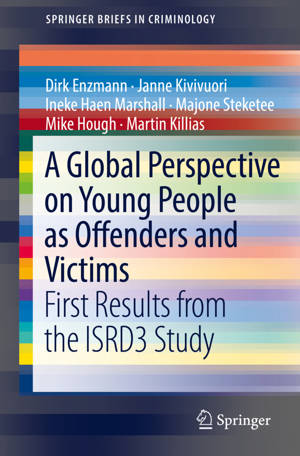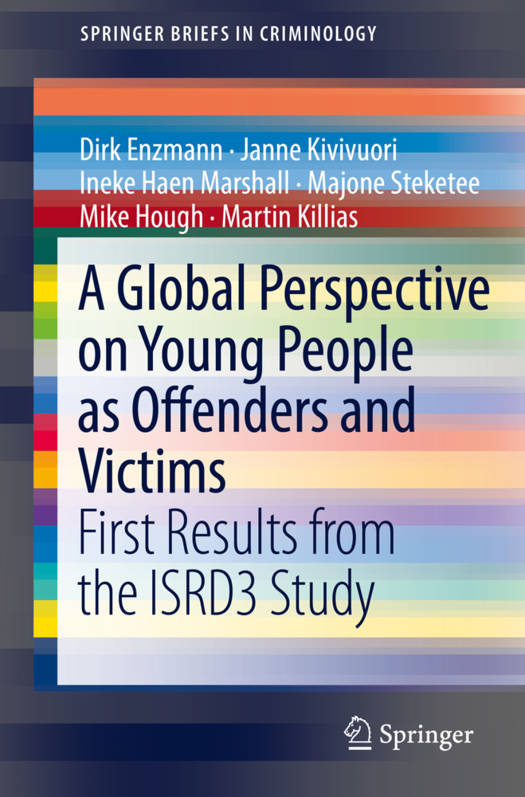
- Retrait gratuit dans votre magasin Club
- 7.000.000 titres dans notre catalogue
- Payer en toute sécurité
- Toujours un magasin près de chez vous
- Retrait gratuit dans votre magasin Club
- 7.000.0000 titres dans notre catalogue
- Payer en toute sécurité
- Toujours un magasin près de chez vous
A Global Perspective on Young People as Offenders and Victims
First Results from the Isrd3 Study
Dirk Enzmann, Janne Kivivuori, Ineke Haen Marshall, Majone Steketee, Mike Hough, Martin KilliasDescription
This Brief presents the first major release of findings from the Third International Self-Report Delinquency Study (ISRD3). ISRD is a major international research collaboration that now covers some 35 countries. It surveys young people aged 12 to 16 in their schools, asking about their experience of crime - both as offenders and as victims - and about their attitudes to crime and justice and about their home and school life. ISRD1 was carried out in 1991-1992 and ISRD2 in 2006-2008. ISRD findings presented here cover the 27 ISRD3 countries for which data are already available, with a total sample approaching 63,000 young people. For most of these countries, the samples are drawn from two major cities.
This volume provides key findings on self-reported offending and on victimization.Chapter 1 set the scene, and describes the background to ISRD3. Chapter 2describes the methods used in the survey; respondents complete the ISRD questionnaire either in paperformat or - increasingly - using a standardized internet program. Chapter 3 covers key findings on self-reported offending, including the important finding that preparedness to disclose offending varies according to cultural context. Chapter 4 presents findings on victimization, including important new findings on hate crime and the use of parental violence, as well as coverage of more conventional forms of crime. A final chapter summarizes the results and draws out their implications.This Brief will be of interest to researchers in criminology and criminal justice, as well as related fields such as sociology, public policy, and psychology. Due tothe groundbreaking methodological analyses provided, this Brief is essential reading to all who conduct or use internationally comparative and global survey research.
Spécifications
Parties prenantes
- Auteur(s) :
- Editeur:
Contenu
- Nombre de pages :
- 85
- Langue:
- Anglais
- Collection :
Caractéristiques
- EAN:
- 9783319632322
- Date de parution :
- 06-10-17
- Format:
- Livre broché
- Format numérique:
- Trade paperback (VS)
- Dimensions :
- 156 mm x 234 mm
- Poids :
- 149 g

Les avis
Nous publions uniquement les avis qui respectent les conditions requises. Consultez nos conditions pour les avis.






